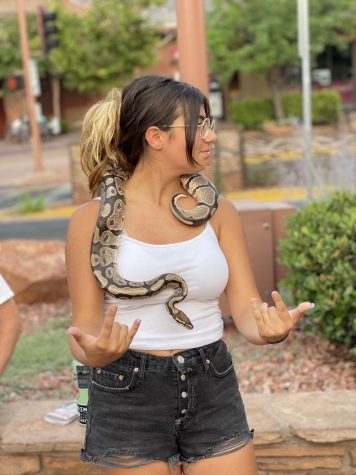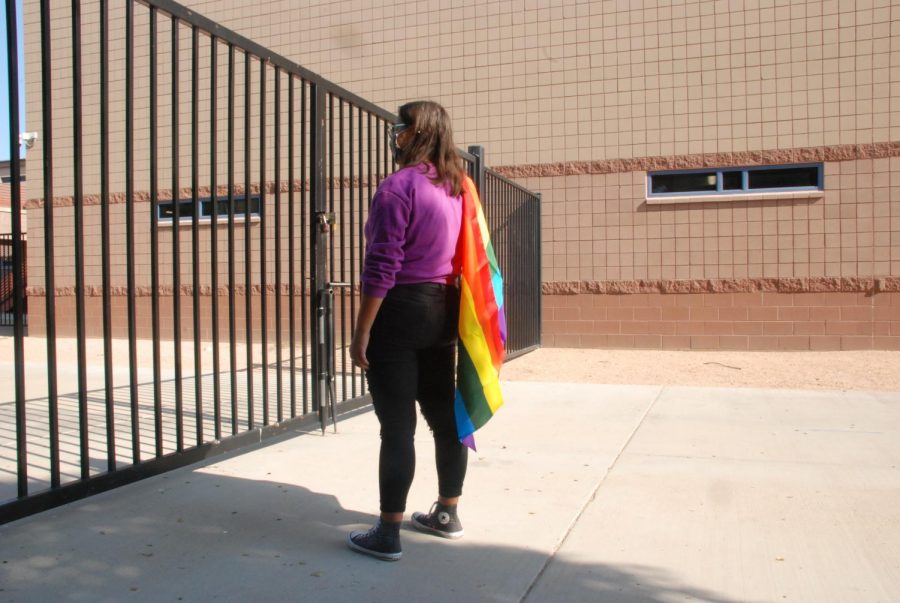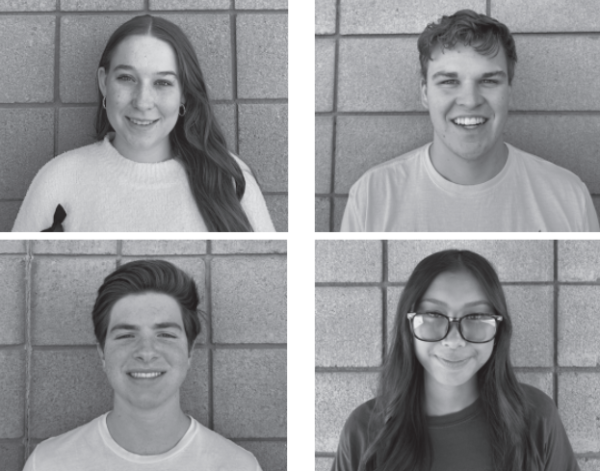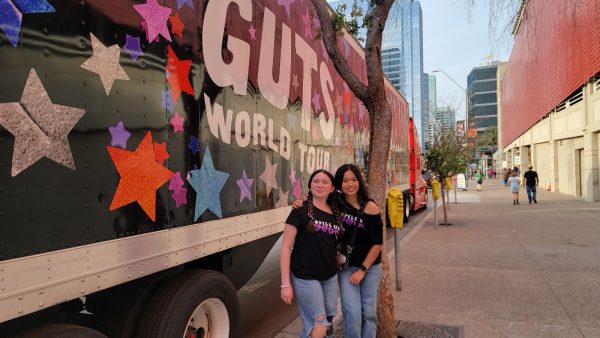Navigating school as part of LGBTQ community
LGBTQ member, senior Clare Hale, stands prideful of her identity. Throughout her high school years, she has explored and become comfortable in who she is.
High school is a time for students to learn, experience, and discover, but for the LGBTQ+ community, there may be extra challenges to gain the best high school experience.
When students do not have a community similar to them, it is found that there may be a separation in support. “I think just being invalidated a lot or just not listened to is a huge detriment on the students’ mental health because just like everybody else that is here, they want to be listened to and validated,” GSA (Gay Straight Alliance) club sponsor, Madi Long-Blanchard said.
Meanwhile, a junior GSA member, Folie Isenhart describes that they have been affected by derogatory terms, but look on to the brighter future, “It has gotten better since freshman year.” They added that profiling contributed to the stigma, “[Students would say comments such as,] ‘Oh they dress like that they must be in LGBTQ’… they’re already discriminating based on how certain people dress or dye their hair etc.”
When it comes to promoting the utmost inclusivity at school, both Isenhart and senior GSA member Ryann Jorgensen mentioned their ideas for improvement. “I think the homecoming king and queen… could be more inclusive [and have] homecoming royalty,” Jorgensen said. Isenhart wishes that preferred names were included in teachers’ rosters and that students and teachers were more aware of preferred pronouns. Dead names are the given name of someone who has changed their name usually due to a newfound gender identity. Dead names are not typically changed to a preferred name for class rosters. “It’s a lot to do, but it makes us feel good. You don’t have to hear the dead name come out and then… get uncomfortable,” they said.
To peers outside of the LGBTQ+ community, “Every year that passes the school becomes more supportive of GSA as a whole… I love having conversations with [peers]… no matter the questions they ask, they’re respecting me,” Isenhart said.
Including GSA, there are resources at school that are available to LGBTQ+ students. Jorgensen mentions the Mindfulness room’s support groups. “I’ve heard from others that [the support group] has been very helpful,” said Jorgensen.
In addition to the counselors and social worker in the mindfulness room, Long-Blanchard highlights peer support through GSA. “Clubs like GSA allow students to either be supported or offer that support to each other… I would think just having more inclusive practices that are accepted by all educators would be amazing and an awesome start for the students,” Long-Blanchard said.
For any students struggling with their identity or sexual orientation, Long-Blanchard and the students offer advice. Long-Blanchard said, “Find a person or find a group that you are comfortable being comfortable with… and be loved. I think that would be the basis for feeling more comfortable and feeling more safe.” In searching for the right “box” to fit into, Isenhart said, “Take your time… Don’t jump to conclusions… It’s a lot to take in… You’ll find something that you fit into.” Similarly, Jorgensen said, “You don’t have to figure it out right now. You have your whole life to figure it out.”
For students who are struggling:
Mindfulness room: C105
Trevor Lifeline at 866-488-7386

Madeleine Nseir is a senior in her second year with The Precedent. She is co-president of on-campus club, Operation Smile, and in the Puma Regiment. Other...




